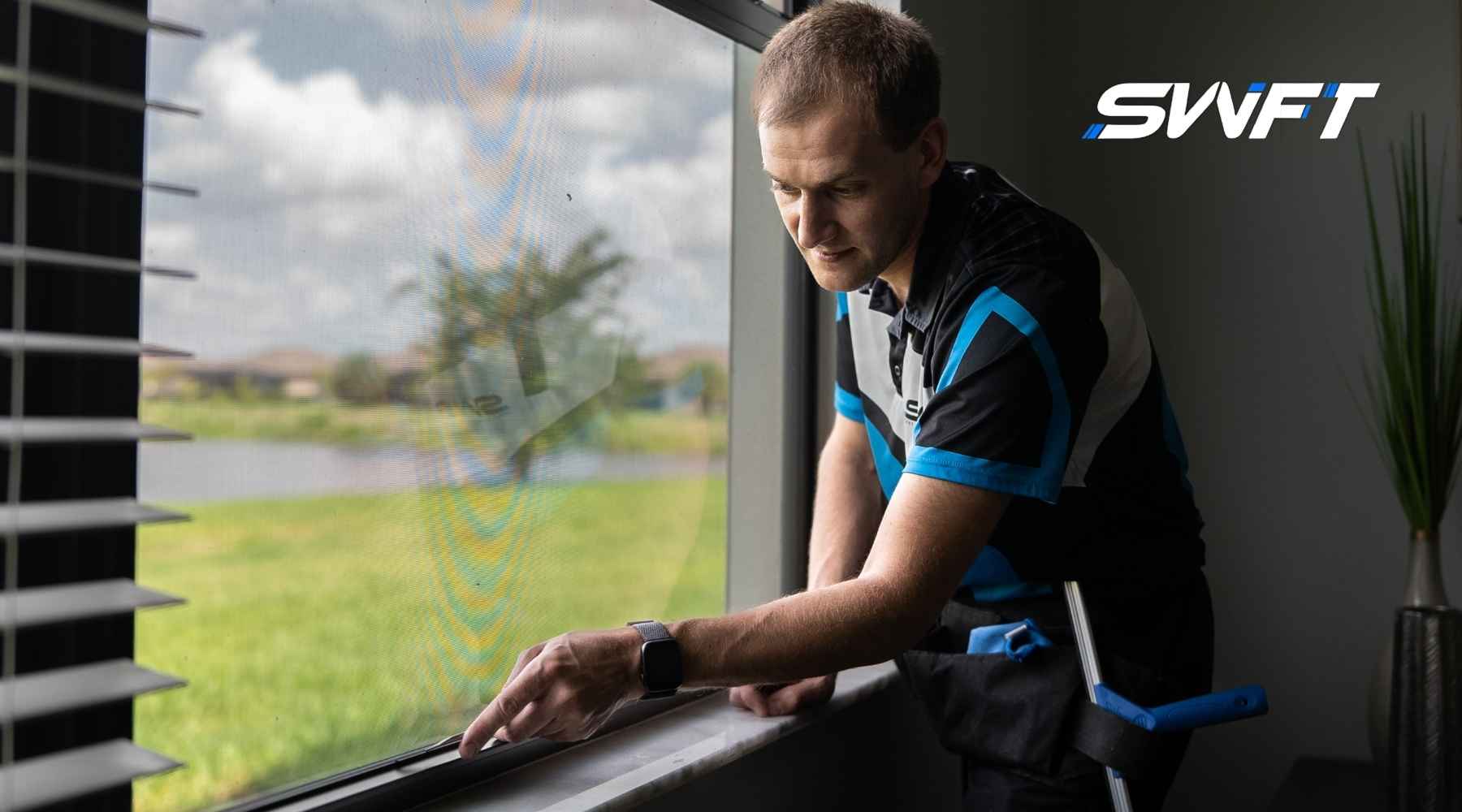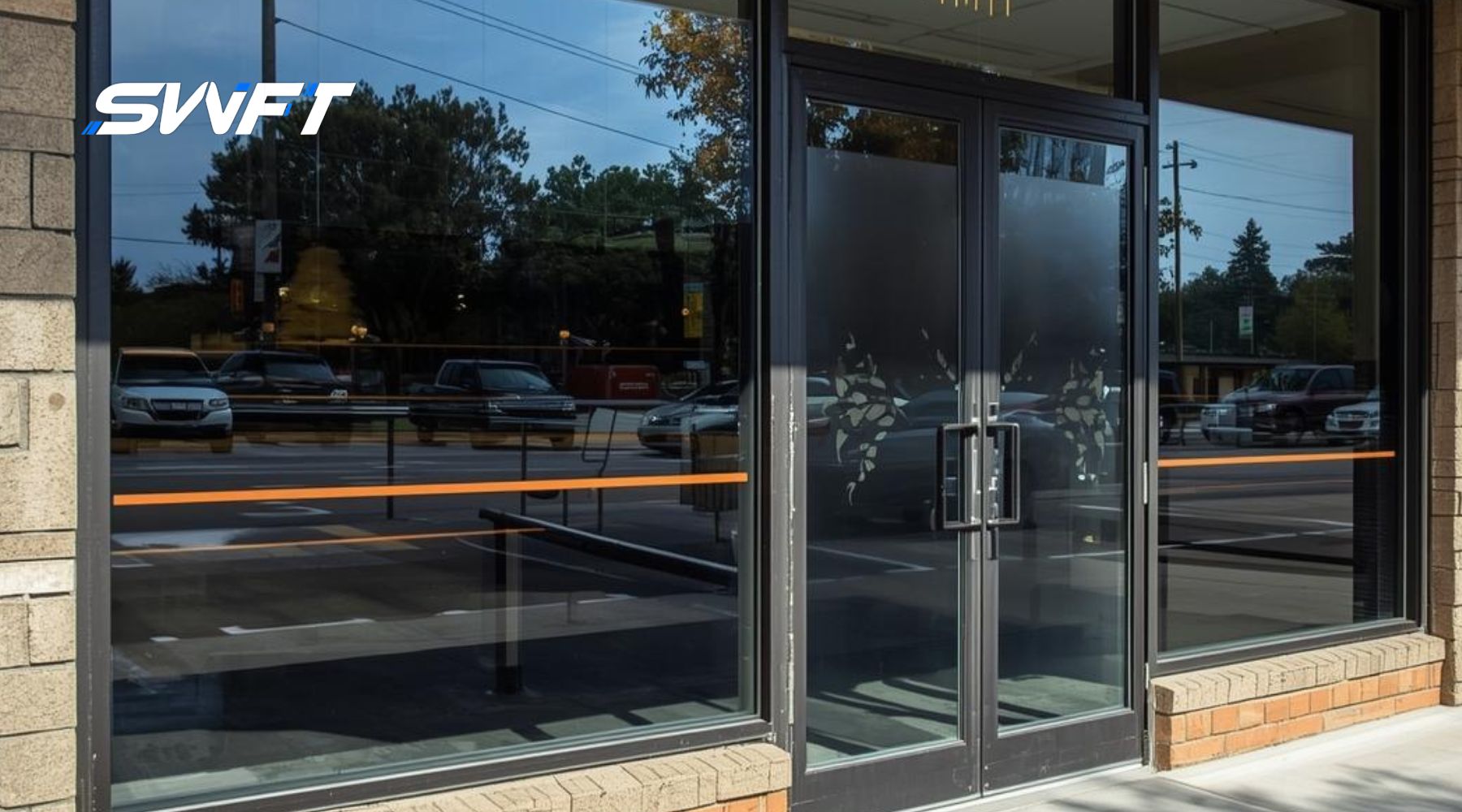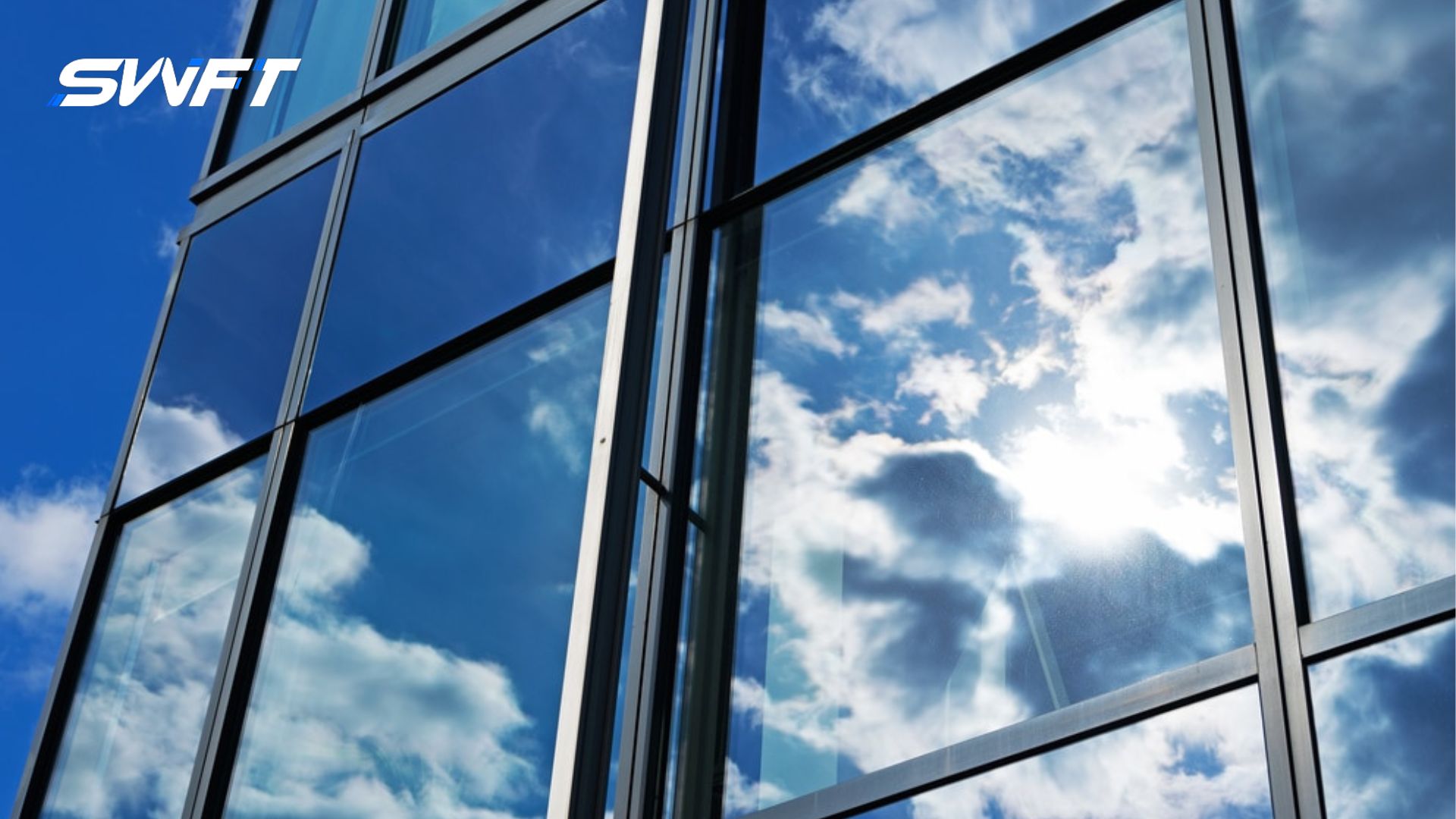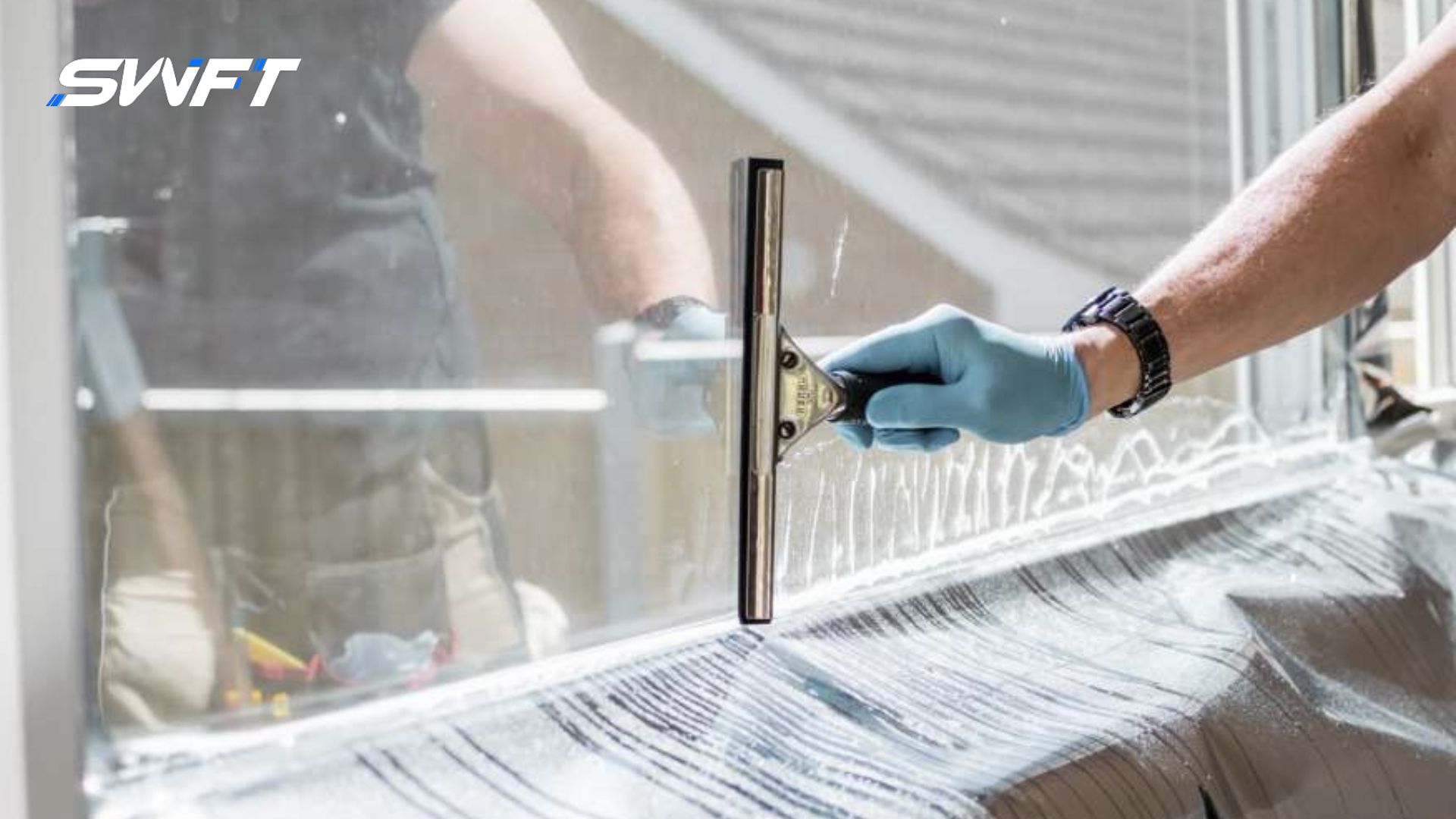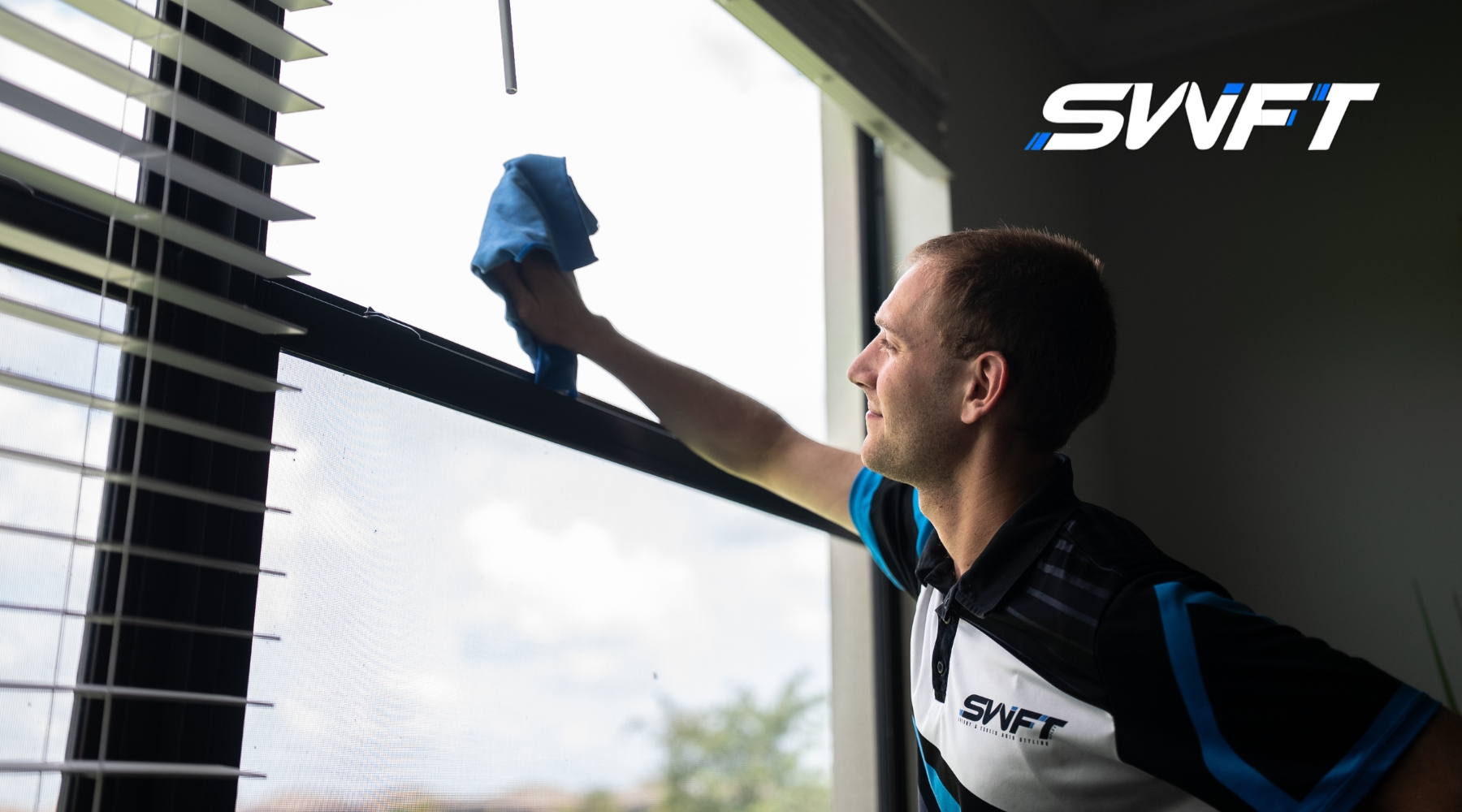Have you ever wondered what residential window tinting is and why so many homeowners in Fort Myers are turning to it? Residential window tinting is an innovative and stylish way to improve your home’s energy efficiency, comfort, and appearance, all while protecting what’s inside. Whether you’re battling intense Florida sun or simply want more privacy, window film offers a modern solution with long-term benefits.
In this blog, we’ll cover everything you need to know, from how it works to its benefits, types, costs, and more. Let’s dive in.
What Is Residential Window Tinting?
Residential window tinting involves applying a thin, specialized film to the interior surface of your home’s windows. This film is designed to enhance the performance of your windows by reducing heat, blocking harmful UV rays, improving privacy, and adding a sleek, modern look to your home’s exterior.
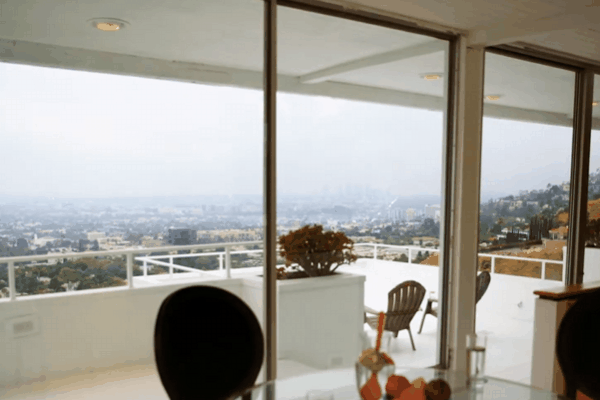
Unlike traditional window coverings like blinds or curtains, window tint doesn’t block your view or eliminate natural light. Instead, it works as a barrier that filters sunlight, minimizing glare and keeping indoor spaces cooler and more comfortable, especially important in sunny climates like Fort Myers.
Window films come in various types and shades, offering different levels of heat rejection, UV protection, and privacy. Some are virtually clear, while others have mirrored or tinted finishes. You can even choose decorative films that mimic etched glass or stained patterns, allowing you to match your home’s style while gaining functional benefits.
In essence, residential window tinting is a highly customizable solution that improves your living environment without the bulk or limitations of traditional window treatments. It’s a perfect balance of form and function, helping you control light, temperature, and visibility, while also protecting your home’s interior from premature fading and sun damage.
Types of Window Tint for Homes
Choosing the right window film depends on your specific needs whether it’s reducing heat, increasing privacy, or adding a decorative touch. Here are the most common types of residential window tint:
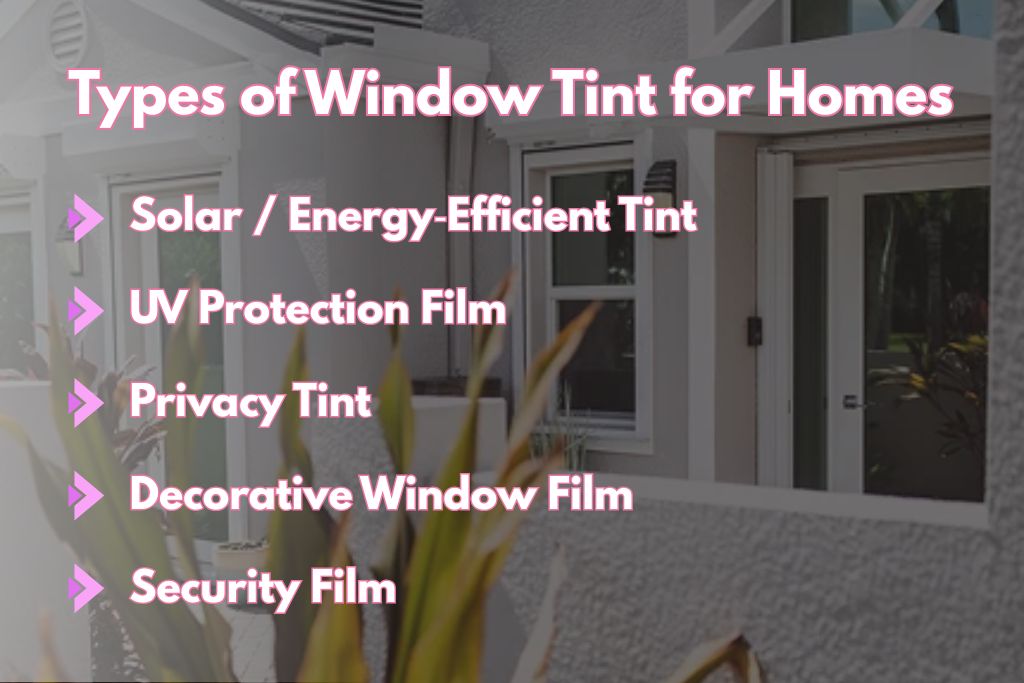
Solar / Energy‑Efficient Tint
Designed to reflect or absorb solar heat, these films help regulate indoor temperatures throughout the year. They’re ideal for improving comfort and lowering air conditioning costs, especially in hot, sunny climates like Fort Myers.
UV Protection Film
These films block up to 99% of harmful ultraviolet rays, helping to protect your furniture, flooring, artwork, and even your skin from long-term sun damage. They’re perfect for preserving your home’s interior and reducing health risks.
Privacy Tint
Privacy tints reduce visibility into your home during the day, offering peace of mind for street-facing windows or rooms with high foot traffic. Options include tinted, mirrored, or frosted finishes, depending on your privacy and style preferences.
Decorative Window Film
Available in various patterns and textures, decorative films are often used to enhance interior design while providing privacy. They’re commonly applied to bathroom windows, entry doors, or glass partitions for a custom look.
Security Film
These durable, thicker films reinforce the glass, making windows harder to shatter. In case of impact, the film helps hold broken glass in place, offering added safety against accidents, storms, or break-ins.
Key Benefits of Residential Window Tinting
Homeowners choose window tinting for much more than just aesthetics. It’s a practical upgrade that improves comfort, security, and efficiency. Here are the top benefits:
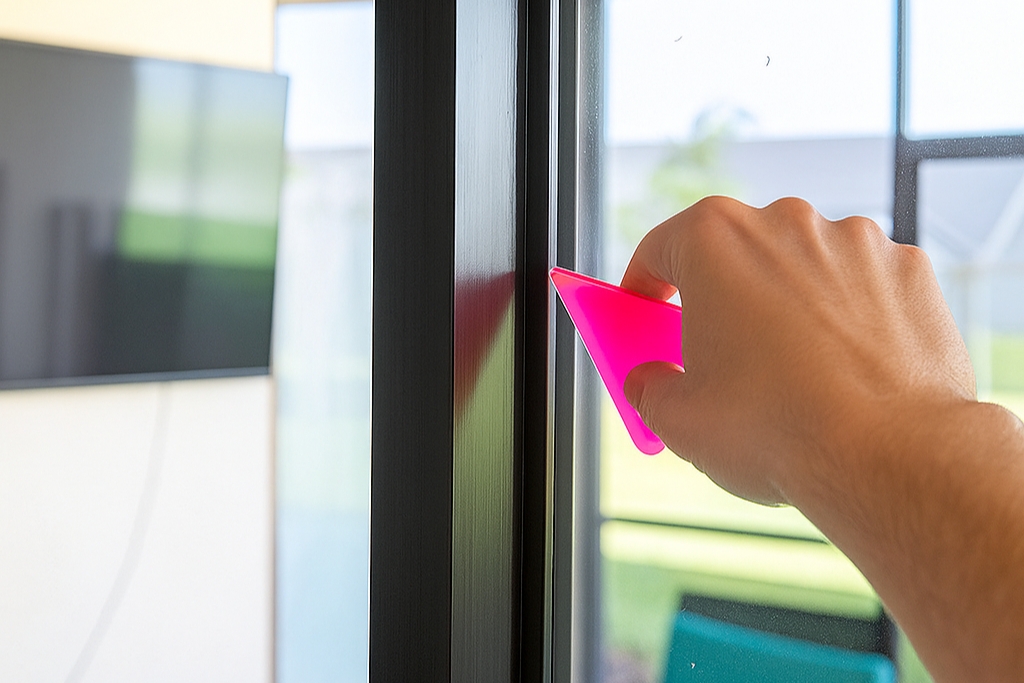
1. Heat Reduction & Energy Savings
By blocking a significant portion of solar heat, window tint helps maintain a cooler indoor temperature. This reduces the strain on your HVAC system, leading to noticeable savings on your monthly energy bills especially crucial in Fort Myers’ intense heat.
2. UV Protection
Tinted films can block up to 99% of harmful UV rays. This protects your interior décor like wood floors, furniture, and artwork from fading, while also reducing long-term skin exposure indoors.
3. Glare Control
Sunlight streaming through windows can cause frustrating glare on screens. Tinting reduces harsh reflections, making it easier to watch TV, work, or read comfortably in natural light.
4. Enhanced Privacy
Window films provide daytime privacy without sacrificing visibility or brightness inside. They’re an excellent solution for street-facing rooms or spaces close to neighbors.
5. Safety & Security
Security films strengthen your windows, making them harder to break. In case of impact or break-ins, the film holds shattered glass in place, helping prevent injuries and intrusions.
6. Curb Appeal
Window tinting enhances your home’s appearance with a clean, uniform finish. Decorative options can also add a touch of personality or elegance to specific areas, like front doors or bathrooms.
Potential Drawbacks & Considerations
Like any home improvement, residential window tinting comes with a few things to consider before making a decision:
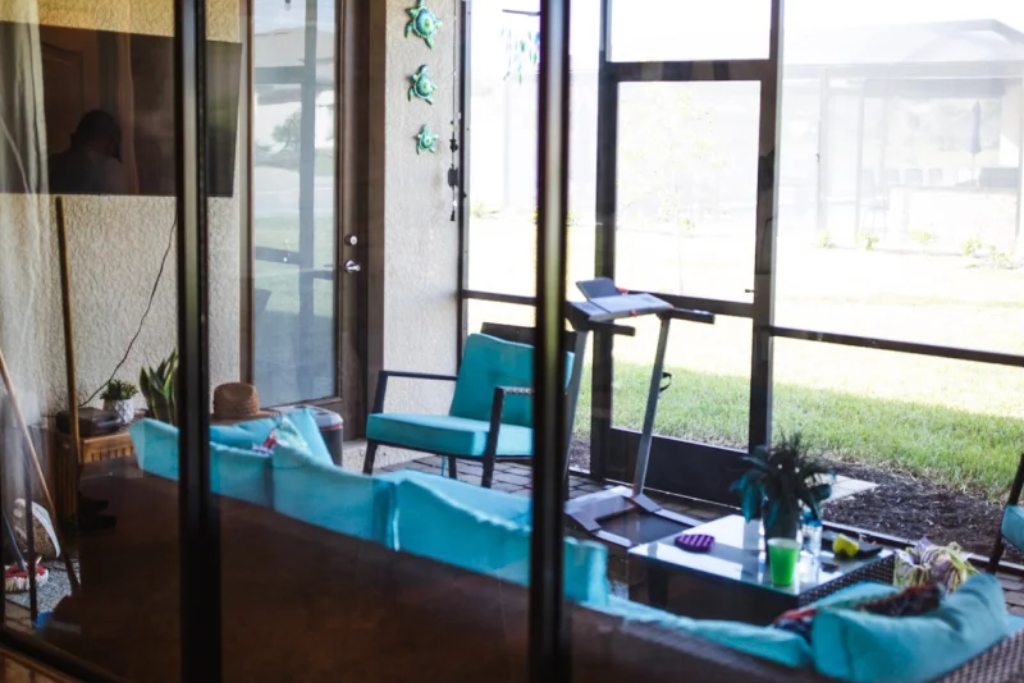
Reduced Night Visibility
While tinting offers excellent daytime privacy, darker films can make it harder to see out of your windows at night, especially in low-light rooms. Interior lighting may be necessary to maintain visibility after sunset.
Installation Costs
High-quality films and professional installation can be an upfront investment. However, many homeowners find the long-term energy savings and comfort well worth the cost.
Durability Depends on Quality
Low-grade films may discolor, peel, or bubble over time. Proper installation and selecting a trusted provider, such as Fort Myers Tint, ensures long-lasting results and a professional finish.
Legal or HOA Restrictions
Some homeowner associations or local building codes restrict the darkness or reflectivity of window tint. It’s essential to check regulations in your area before installation to avoid compliance issues.
Window Warranty Issues
Applying tint to newer or double-pane windows may void the manufacturer’s warranty if incompatible films are used. Always consult with your installer to ensure the film is warranty-safe and approved by the window manufacturer.
How Much Does Home Window Tinting Cost?
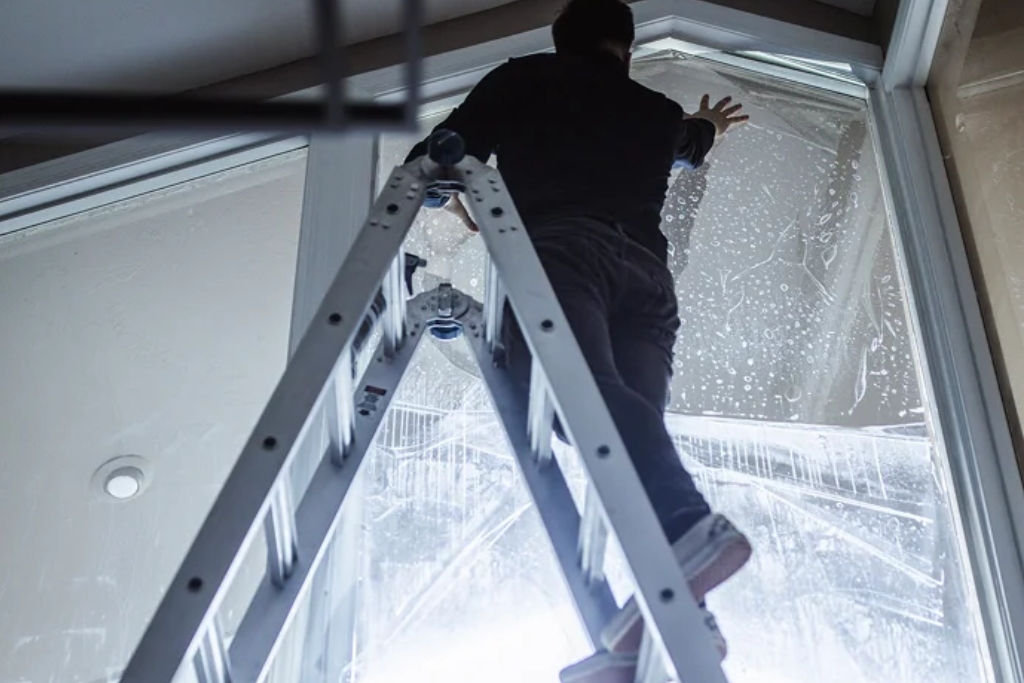
The cost of residential window tinting depends on several key factors, including the size of your home, the number and size of windows, window shape and accessibility, and the type of tint film selected.
Average Cost Breakdown:
- Typical Total Range: $750 to $5,000+
- Basic Dyed Films: $5–$8 per square foot
- High-Performance Films (UV protection, solar control, security): $10–$15+ per square foot
- Custom or Decorative Films: $12–$20 per square foot
Large, multi-panel windows, skylights, or hard-to-reach areas may increase installation costs. Homes with intricate architecture or older windows might also require more time or prep work.
Long-Term Value
While the initial investment may seem high, the long-term benefits often outweigh the cost. Tinted windows can reduce cooling expenses by up to 30%, lower HVAC strain, and prevent costly damage to furniture and flooring caused by UV rays. Over time, these savings can help homeowners break even, and even save more within a few years.
Additionally, many homeowners view window tinting as a cost-effective alternative to replacing windows altogether, making it a smart solution for boosting comfort and efficiency without major renovations.
Residential vs. Commercial vs. Auto Tint
While all types of window tinting use similar materials, each is designed with different goals in mind. Understanding these differences can help you choose the right solution for your space:
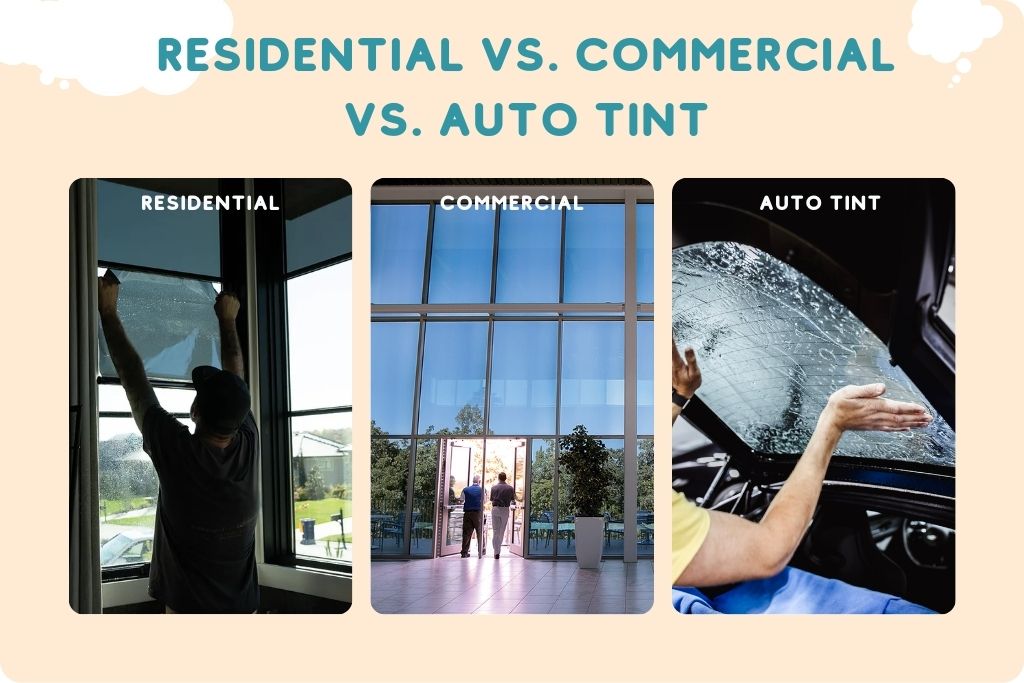
Residential Tinting:
Tailored to enhance comfort, privacy, and style at home. These films improve energy efficiency, reduce glare, and protect interiors from UV damage, perfect for homeowners who want to create a more comfortable and energy-conscious living space.
Commercial Tinting:
Applied to office buildings, retail stores, and industrial facilities. It prioritizes large-scale solar control, increased security, and branding opportunities (such as frosted logos or decorative designs). It also helps reduce operational costs by improving HVAC efficiency.
Automotive Tinting:
Engineered specifically for vehicles, auto tinting boosts privacy, reduces glare while driving, protects passengers from UV rays, and gives your car a sleek, finished appearance.
At Fort Myers Tint, we specialize in all three categories, offering customized solutions based on your property type, functional goals, and personal preferences. Whether it’s your home, business, or car, we’ve got you covered.
Residential Window Tinting Installation Process
We at Fort Myers Tint make the process of upgrading your windows smooth, professional, and hassle-free. Here’s what you can expect from start to finish:
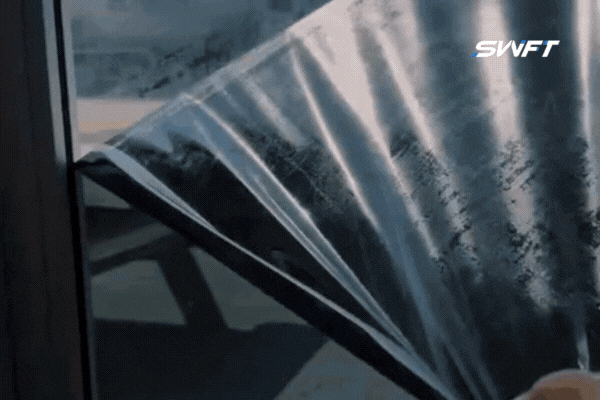
1. Consultation
Our team begins with a personalized consultation, either in-home or virtually. We evaluate your window layout, lighting conditions, and specific needs, whether it’s heat reduction, added privacy, or decorative styling.
2. Film Selection
You’ll have access to a curated selection of premium residential window films, including solar control, UV-blocking, privacy, decorative, and security options. We’ll guide you through the benefits of each to help you choose the perfect match for your home and lifestyle.
3. Professional Installation
Our experienced technicians handle every detail of the installation process. We use precision techniques and top-tier tools to ensure your film is applied flawlessly, free of bubbles, streaks, or peeling edges.
4. Aftercare & Support
Once installation is complete, we provide you with easy-to-follow care instructions to maintain the performance and appearance of your window film. Plus, our team is always available for follow-up questions or service.
With Fort Myers Tint, you get more than just film you get peace of mind, expert craftsmanship, and long-lasting results.
Ready to get started? Contact us today to receive a free quote or schedule your personalized consultation.
Conclusion
So, what is residential window tinting? It’s one of the smartest investments you can make for your home. From improving energy efficiency to boosting privacy and security, window tinting offers long-term value, comfort, and style.
If you’re ready to explore window film for your home, trust the experts at Fort Myers Tint. Get your free residential tinting quote today or explore our full range of services to see how we can enhance your space.
FAQ: People Also Ask
What are the benefits of residential window tinting?
Lower energy bills, UV protection, enhanced privacy, improved security, and enhanced aesthetics.
What are the cons of residential window tinting?
Potential for reduced nighttime visibility, upfront cost, and possible warranty conflicts.
How long does residential tint last?
Most high-quality films last between 10 and 20 years with proper care.
Can you legally tint residential windows?
Yes, but local codes and HOAs may have restrictions. Always verify before installing.
What is residential tint?
It’s a protective film applied to home windows for comfort, privacy, energy efficiency, and more.
What is the difference between residential and commercial tint?
Residential tint is designed for home comfort and style; commercial tint prioritizes energy savings and branding for businesses.
What is the best type of residential window tint?
It depends on your goals, solar control, privacy, decorative, or security films each serve different purposes.
Why is UV protection important in home window tinting?
UV rays fade furnishings and pose health risks. Tint blocks them to protect your interior and family.
Why does window tint help reduce energy bills?
By blocking solar heat, your HVAC system doesn’t have to work as hard, resulting in reduced electricity usage.
Southwest Florida Tinting & PPF (SWFT)
Phone
Opening Hours
Monday to Friday: 7AM - 7PM
Saturday: 9AM - 5PM
Sunday: Closed

